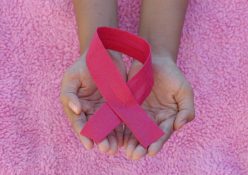Women’s health is a complex thing – there are so many facets to our wellbeing as a female, from hormones and mental health to our stress levels and our changing reproductive systems as we age. Luckily, the approach to our health has evolved over the years to where doctors and other health practitioners are now seeing women’s health through a far more holistic lens.
In order for us to live our best and healthiest lives as women, here are five women’s health topics that have changed over the years – and that we need to be mindful of, and perhaps challenge, in 2022:
Menopause isn’t a condition
Modern society thinks of menopause as a condition that needs to be treated or managed – not least due to the stigma placed on women of middle age or older in the past. But as author and historian Susan Mattern points out, menopause in premodern societies was viewed as an upgrade; an entrance into an important phase of life. Mattern says that we need to rethink the view that “only young people are useful” and instead see older women as previous societies did: as matriarchs who hold wisdom and knowledge to pass on to the younger generations. While menopause can cause some discomfort, seeing it in this light can make families and communities value mature women far more, and give more support to them while they go through this important phase of life.
Perimenopause comes before menopause
Most people know about our first point above (menopause) – defined as when a woman stops menstruating – but not everyone knows about perimenopause, the “transition phase” that precedes it, which can last anywhere from two to ten years. While signs can differ between women, the most common symptom is irregular periods, due to the uneven levels of oestrogen in the body. Knowing about perimenopause can help you manage and stabilise the hormones responsible for this transition phase, which can lessen the effect and disruption of any associated symptoms you may have.
Early screening can prevent women’s cancers
We know that early screening can be the key to early detection and more effective treatment for many types of cancers, but this is especially true for women’s cancers such as breast, cervical and ovarian cancer. This is because many of us still aren’t encouraged to get to know our own bodies, so we can be aware of the symptoms that we should be looking out for – or how to lower our own personal risk of developing these cancers in the first place. Increased awareness and education, along with things like preventative screenings, can ultimately save their lives. Many medical aids include screening as part of their cover – Fedhealth’s screening benefit, for example, includes an annual pap smear for cervical cancer screening, as well as a breast cancer screening with mammography if you’re over 45.
Birth control doesn’t have to only be a women’s problem
While there are several options for long term contraceptives for women, the options for men are limited by comparison – or irreversible, in the case of a vasectomy. But recent years have seen a change in this area: scientists are currently researching the use of magnetic, biodegradable nanomaterials on the testes, which could help prevent sperm being produced and therefore preventing pregnancy. Another concurrent study is trialling the use of monoclonal antibodies to immobilise sperm before it can reach the egg. With this research, the future may see men and women taking equal responsibility for birth control, rather than it being simply a “women’s issue”.
- Women’s mental health has suffered as a result of the pandemic
The World Economic Forum has found that the Covid-19 pandemic has had a negative impact on women’s health specifically. One of the reasons cited was the failure to keep sexual and reproductive health systems available as a result of overwhelmed healthcare systems – resulting in a neglect with several women’s health issues. Another study by the University of Chicago Medicine found that US women experienced increased health-related socioeconomic risks (HRSRs) such as food insecurity and interpersonal violence, along with mental issues such as depression and anxiety. It’s clear that the burden of the emotional fallout from the pandemic has fallen on women’s shoulders – and if we’re to thrive as a society going forward, this needs to change.
There should be no taboo topics when it comes to managing our health. After all, our bodies are designed to carry us through life, and there should be no embarrassment at how they change as we age and grow. Taking a proactive approach to managing our health as women, and having open discussions about any issues or conditions we experience, is one of the most empowering ways to keep us healthier and happier – for longer.





